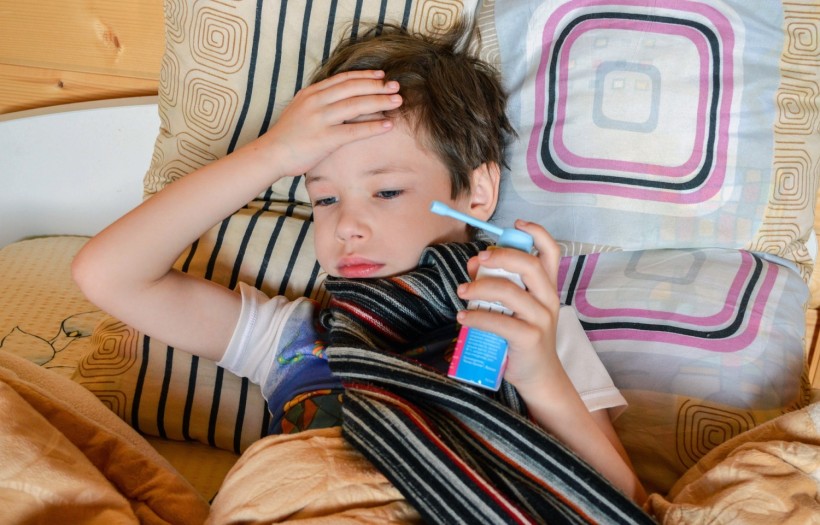RSV, respiratory syncytial virus, is a common illness with cold-like symptoms. According to health officials, RSV cases among pediatric patients recently increased in at least 33 states.

Child sick medicine
Hospitalized Children Increases Due to RSV
According to epidemiologist and editor-at-large at Kaiser Health News Celine Gounder, the reason we are currently experiencing a significant increase is because during the pandemic we were socially isolated and masked. This is the reason why there are so many young children who have never been exposed. Then they are all exposed all at once.
Gounder said that the virus affects the upper respiratory system, causing a runny or stuffy nose, a cough, or a sore throat. Bronchitis or pneumonia may manifest when the infection spreads to the lungs or lower airways. It may be much more harmful, she said.
The RSV infection causes an estimated 58,000 hospitalizations in children under the age of five each year, according to the CBS News report. Additionally, one to two out of every 100 children under the age of six months who have RSV may require hospitalization.
According to the CDC, RSV is often treated in adults within one to two weeks. Yet, because of their smaller airways and underdeveloped immune systems, children and infants are impacted differently. They simply get into problems far more readily because they can't fight them off as efficiently.
RSV Symptoms to Watch Out For
If you suspect that your child has RSV, you should be on the lookout for irritability, changes in feeding habits, and gasping or wheezing. The children cough so excessively that they find it difficult to take deep breaths. Gounder stated that, at that point, she would start to worry significantly.
The virus spreads through the air in a manner similar to how COVID or the flu does. A pediatrician can test children with a nasal swab to see if they have RSV because it is impossible to tell whether they have RSV, COVID, or the flu based solely on symptoms. Take note that there is no RSV test that can be done at home.
Gounder urged parents to get their child tested immediately if thye notice any of the warning signals.
How RSV Spreads?
RSV is a very contagious illness, according to Kid's Health. When someone coughs or sneezes, the virus is transferred through droplets. Additionally, it can survive on hands, clothing, and surfaces like doorknobs and counters. Therefore, if someone touches something contaminated, they could contract it.
In childcare facilities and schools, RSV can swiftly spread. Babies frequently contract it when older children bring the virus home from school and infect them. By the time they turn two years old, almost all children have had RSV at least once. According to the CDC, the majority of those who contract RSV are contagious for three to eight days. The virus can spread up to four weeks after exposure to some newborns and those with low immune systems.
RSV Treament Available
Although some are now undergoing clinical testing, there isn't a specific vaccination to prevent RSV. However, a monthly prophylactic injection of monoclonal antibodies known as SYNAGIS may be beneficial for infants under the age of 24 months who have specific lung or heart issues. The risk of serious RSV lung infections can be decreased with this medication.
The major goal of RSV treatment, aside from that, is to reduce symptoms with supportive measures like hydration or oxygen therapy, if oxygen levels are low. If RSV results in pneumonia or respiratory difficulties, hospitalization may be necessary.
RELATED ARTICLE: Development of Respiratory Syncytial Virus (RSV) Vaccine and Monoclonal Antibodies Underway
Check out more news and information on Medicine and Health in Science Times.














